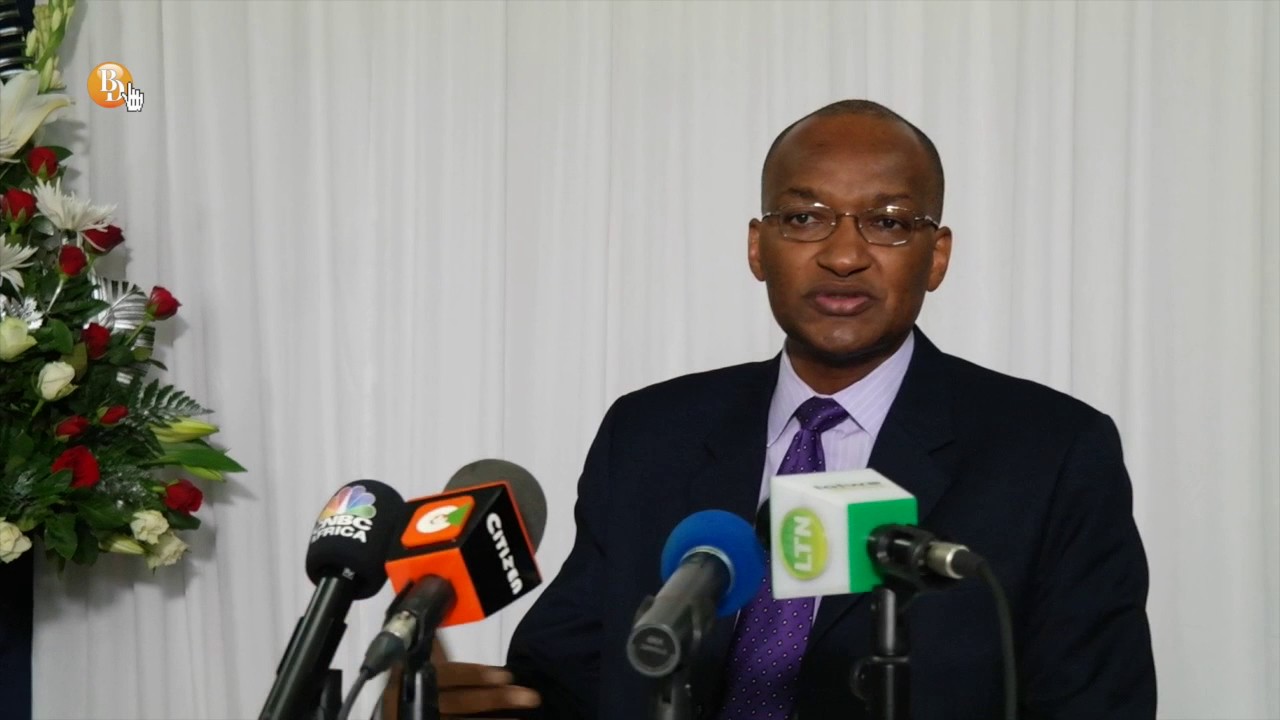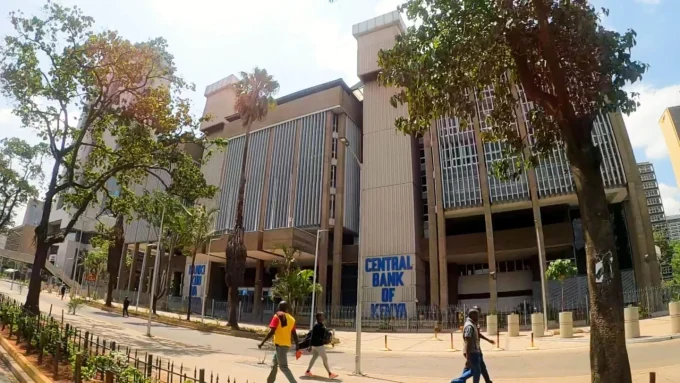The Monetary Policy Committee (MPC) on Monday once again voted to retain the Central Bank Rate (CBR) at 9.00%, saying inflation expectations remain well-anchored within the target range, and that the economy was operating close to its potential.
In addition, the Committee took noted of the prospective tightening of fiscal policy which would provide scope for accommodative monetary policy in the near term.
Nevertheless, it said, there is need to remain vigilant on the possible effects of the increased uncertainties in the external environment.
“The MPC concluded that the current policy stance remains appropriate, and therefore decided to retain the CBR at 9.00 percent. The MPC will continue to closely monitor developments in the global and domestic economy, including any perverse response to its previous decisions, and stands ready to take additional measures as necessary,” MPC Chairman Dr Patrick Njoroge said in a statement.
The CBR, was first lowered to 9.00% from 9.5% on July 30 last year. CBR is the rate that is used by the central bank to implement or signal its monetary policy stance.
Monday’s meeting was held against a backdrop of domestic macroeconomic stability, sustained optimism on economic growth prospects, heightened global uncertainties and volatility in international markets.
According to the Committee, month-on-month overall inflation remained within the target range in July and August 2019, and is well anchored. The inflation rate fell to 5.0 percent in August from 6.3 percent in July, reflecting decreases in the prices of both vegetable and non-vegetable food crops due to improved supply.
Food inflation declined to 6.7 percent in August from 7.9 percent in July following improved weather conditions. Non-food-non-fuel (NFNF) inflation remained below 5 percent, indicative of muted demand pressures and spillover effects of the excise tax indexation in July and the recent increase in fuel prices.
Overall inflation is expected to remain within the target range in the near term mainly due to expectations of lower food prices with the expected favourable weather conditions, and lower electricity prices reflecting the reduced usage of expensive power sources, said Njoroge, who is also the Central Bank Governor.
He said recent increase in international oil prices is expected to exert moderate upward pressure on fuel prices, but with limited pass-through effects on inflation.
The foreign exchange market has remained relatively stable, supported by the narrowing of the current account deficit to 4.2 percent of GDP in the 12 months to July 2019 from 5.5 percent in July 2018, he said, adding that the narrowing reflects resilient performance of exports particularly horticulture and manufactured goods, strong diaspora remittances, higher receipts from tourism and transport services and lower imports of food and SGR-related equipment.
Private sector access to credit
The current account deficit is expected to narrow to 4.5 percent of GDP in 2019 from 5.0 percent in 2018. The CBK foreign exchange reserves, which currently stand at USD9,091 million (5.7 months of import cover), continue to provide adequate cover and a buffer against short-term shocks in the foreign exchange market.
Njoroge said private sector credit grew by 6.3 percent in the 12 months to August, compared to 6.1 percent in July. Strong growth in credit to the private sector was observed in the following sectors: trade (8.4 percent); manufacturing (7.5 percent); consumer durables (23.0 percent); private households (8.6 percent); and finance and insurance (6.3 percent).
“The uptake of credit particularly by Micro, Small and Medium Enterprises (MSMEs) is expected to increase as innovative new credit products in the banking sector become fully deployed. Credit uptake will also be supported by ongoing reforms in the banking sector to strengthen the credit information sharing mechanism and promote transparency in pricing,” said Njoroge.
He added that the banking sector remains stable and resilient with the average commercial banks’ liquidity and capital adequacy ratios stood at 50.8 percent and 18.3 percent, respectively, in August. The ratio of gross non-performing loans (NPLs) to gross loans stood at 12.6 percent in August compared to 12.7 percent in June. Banks have continued with mitigation measures against NPLs, including enhanced recovery efforts.
Leading indicators of economic activity such as growth in electricity and cement consumption, tourist arrivals, consumption-based taxes, and imports of intermediate goods, indicate that growth has remained strong in 2019. This is expected to continue for the rest of the year, supported by agricultural production, implementation of the Big 4 agenda, strong growth of MSMEs and the service sector, foreign direct investment and a stable macroeconomic environment.
Njoroge said the MPC Private Sector Market Perception Survey conducted in September 2019 indicates that inflation expectations remain well anchored within the target range, mainly due to expectations of lower food prices following improved supply.
Big 4 Agenda projects
The Survey also shows sustained optimism that economic growth will remain strong in 2019 due to, among other factors, implementation of the Big 4 agenda projects, ongoing public infrastructure investments, improved weather conditions, and a stable macroeconomic environment. Forward hotel bookings indicate sustained strength in the tourism sector.
“Nevertheless, the optimism is tempered by concerns about the effect of trade tensions between the U.S. and China on global growth, slow growth in private sector credit and the remaining pending bills in both the public and private sectors,
On the global front, growth in 2019 has slowed down, largely due to heightened uncertainties with regard to escalation of trade tensions between the U.S. and China, other geo-political tensions which have resulted in volatile international markets, and shifting expectations on the nature and timing of Brexit.
Although central banks in major advanced economies have adopted accommodative monetary policy to support growth, Njoroge noted, the current uncertainties may result in increased volatility in the global financial markets.













Leave a comment